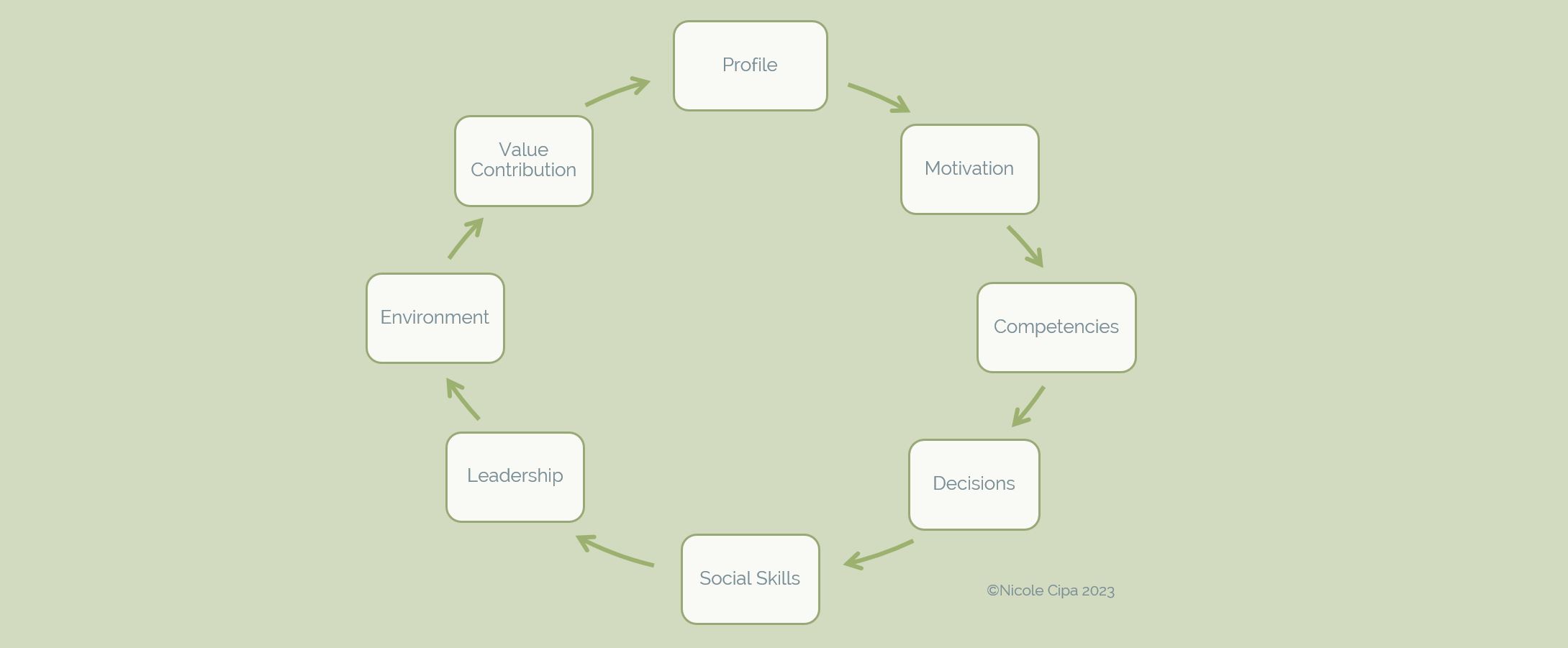Coaching and training
can support
professional development
in a targeted and tailor-made
fashion
Coaching
and training support
professional development
in a tailor-made way
Every professional biography is different.
But they all consist of the same building blocks.
Each building block can contribute to personal success in business – individually and in conjunction with other elements.
New and difficult situations at work offer opportunities for personal growth.
Each module can contribute to personal development in coaching and training.
Coaching can provide targeted support – especially if a career has stalled or a new phase is about to start.
Below you will find explanations of each module as well as the corresponding coaching approaches.
The Modular Approach
The Modular Approach of Professional Development

Profile
Motivation
Competencies
Decisions
Social Skills
Leadership
Leadership is complex and encompasses significantly more tasks and facets than the purely functional management of a team.
How do you motivate very different people to consistently perform well and collaborate productively? How do you synchronize the needs of your manager, customers, and employees? How do you manage change? How do you communicate corporate decisions in a convincing way? How do you set new impulses, mediate conflict or develop talents?
How can coaching support you?
If you are aiming for a leadership position or want to improve your existing leadership skills in a targeted manner, individual coaching is a very effective tool.
You start by taking stock of your strengths and areas of development and get to know your own leadership style better.
Coaching helps you sharpen your perception, continuously expand your leadership repertoire and refine nuances in your behavior. The more extensive your leadership responsibilities become, the broader your palette should be. On the way to higher positions, it is often necessary to cut back on previously useful skills and acquire new ones.
Environment

